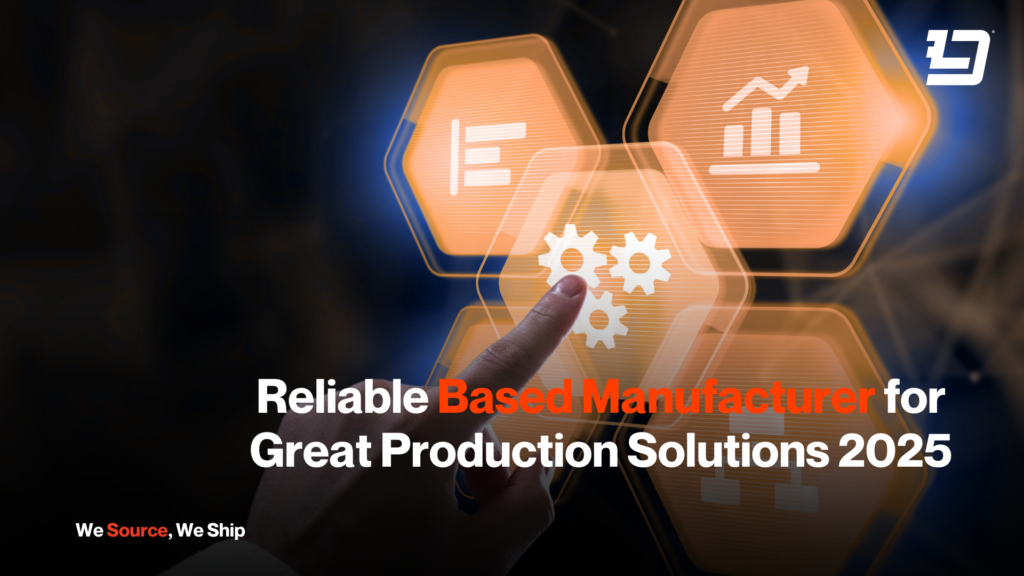
Introduction
When searching for a reliable based manufacturer, businesses need a partner that ensures quality, efficiency, and cost-effectiveness. A trusted based manufacturer provides end-to-end solutions, covering production, quality control, and logistics to streamline supply chains. By choosing a well-established based manufacturer, companies can minimize risks, enhance operational efficiency, and improve product consistency across global markets.
A reliable based manufacturer is essential for businesses looking to scale while maintaining high standards. Whether a company requires dermo-cosmetic care products, Italian hair products, or other specialized goods, a based manufacturer ensures precise production tailored to industry needs. Working with an experienced based manufacturer means gaining access to advanced manufacturing techniques, quality assurance processes, and logistical expertise that drive long-term success.
Partnering with a top-tier based manufacturer provides a competitive advantage, allowing businesses to focus on branding, marketing, and customer engagement while leaving production complexities in expert hands. With a dependable based manufacturer handling manufacturing and fulfillment, companies can streamline supply chain operations, reduce costs, and expand market reach effectively. Choosing the right based manufacturer is a strategic decision that can significantly impact growth and profitability.
Table of Contents
- What’s a Based Manufacturer?
- What Defines a Top Based Manufacturer in 2025?
- Comparing Manufacturing Models: Platform, Project, and Web-Based
- Why Choose a Reliable Based Manufacturer?
- How a Based Manufacturer Supports Your Business Growth
- Based Manufacturing: FAQs
- Work with a Leading Based Manufacturer Today
1. What’s a Based Manufacturer?
A based manufacturer is a company that specializes in producing goods from a specific location, often catering to international clients looking for quality and cost-effective manufacturing solutions. These manufacturers operate within established production hubs that offer skilled labor, advanced infrastructure, and streamlined supply chains, ensuring businesses receive top-tier manufacturing services. By leveraging the expertise of a based manufacturer, companies can maintain product consistency, reduce production errors, and meet market demands efficiently.
Beyond just production, a based manufacturer plays a crucial role in research, development, and innovation. Many businesses collaborate with a based manufacturer to refine product formulations, improve packaging, and integrate the latest technological advancements. This partnership allows brands to stay competitive in rapidly evolving markets while benefiting from the manufacturer’s industry experience and technical know-how.
By partnering with a reliable based manufacturer, businesses can optimize costs and scale production without sacrificing quality. The ability to customize production processes, ensure compliance with international regulations, and manage logistics effectively makes a based manufacturer an essential component of any successful supply chain strategy. Whether sourcing raw materials or overseeing final product assembly, a trusted based manufacturer provides the infrastructure needed for long-term growth.
2. What Defines a Top Based Manufacturer in 2025?

1. Advanced Technology & Automation
- Utilization of AI, robotics, and IoT for precision and efficiency
- Smart factories with real-time data monitoring and predictive maintenance
- 3D printing for rapid prototyping and cost-effective production
2. Sustainable & Eco-Friendly Practices
- Compliance with global sustainability standards (e.g., carbon neutrality, zero-waste initiatives)
- Use of biodegradable, recyclable, or reusable materials
- Energy-efficient manufacturing processes
3. Strong Supply Chain & Logistics Capabilities
- Ability to navigate global supply chain disruptions
- Efficient sourcing of raw materials with minimal delays
- Smart warehousing and inventory management
4. High-Quality Standards & Certifications
- ISO 9001, GMP, FDA, and other relevant industry certifications
- Strict quality control measures with automated defect detection
- Commitment to continuous improvement and compliance
5. Customization & Flexibility
- Ability to offer private labeling and OEM/ODM services
- Flexible production capabilities to meet client-specific needs
- Quick adaptation to market trends and consumer demands
6. Competitive Pricing & Cost Efficiency
- Lean manufacturing processes to minimize waste and reduce costs
- Strategic partnerships to optimize raw material procurement
- Transparent pricing structures with flexible payment terms
7. Ethical & Social Responsibility
- Fair labor practices and ethical sourcing policies
- Support for local communities and employee well-being programs
- Transparent ESG (Environmental, Social, Governance) reporting
8. Digital Integration & E-commerce Support
- Digital marketing and branding support for partners
- Seamless integration with global e-commerce platforms (Amazon, Shopify, etc.)
- Direct-to-consumer (DTC) capabilities and dropshipping options
Sustainability and Ethical Imperatives: Building a Responsible Future
Sustainability and ethical practices will be integral to a manufacturer’s identity and reputation in 2025. Consumers and businesses are increasingly conscious of their environmental footprint, demanding transparency and accountability. Leading manufacturers will embrace circular economy principles, implementing closed-loop systems to minimize waste and maximize resource utilization. They will invest in renewable energy sources, adopt eco-friendly materials, and implement energy-efficient processes throughout their operations. Beyond environmental concerns, ethical labor practices and supply chain transparency will be paramount. Manufacturers will ensure fair wages, safe working conditions, and responsible sourcing, building trust and fostering long-term relationships with stakeholders. They will also be able to provide verifiable proof of their sustainability and ethical practices.
Strategic Partnerships and Comprehensive Solutions: The Key to Long-Term Success
In 2025, a top manufacturer will transcend the traditional role of a production facility and become a strategic partner, offering comprehensive solutions that address the evolving needs of its clients. They will possess in-depth knowledge of global trade environments, navigating complex regulations and logistics with ease. They will provide end-to-end fulfillment services, ensuring seamless delivery and customer satisfaction. Moreover, they will collaborate closely with clients, offering market insights, product design support, and customized solutions that drive innovation and growth. They will provide detailed market analysis, and product lifecycle management. They will also provide data driven feedback to customers on how to improve their products. By fostering collaborative relationships and acting as trusted advisors, they will position themselves as indispensable partners, ensuring mutual success in a dynamic and competitive global market. They will also be able to offer flexible financing options.
3. Comparing Manufacturing Models: Platform, Project, and Web-Based
| Criteria | Platform-Based Manufacturing | Project-Based Manufacturing | Web-Based Manufacturing |
| Definition | Uses a centralized platform to connect buyers with manufacturers | Custom, one-time manufacturing tailored to specific projects | Utilizes cloud-based tools for on-demand and distributed manufacturing |
| Best For | E-commerce brands, private label sellers, global sourcing | Large-scale, custom, or specialized production (e.g., aerospace, industrial) | Small-batch, on-demand, and digital fabrication services |
| Production Type | Standardized mass production with customization options | Fully customized, often high-complexity, low-volume | Flexible, on-demand, and decentralized manufacturing |
| Lead Time | Faster due to pre-established supply chains | Longer due to engineering and development cycles | Varies based on supplier network and order complexity |
| Technology Used | AI-driven supplier matching, automated quoting | CAD, prototyping, and specialized machinery | Cloud-based ERP, IoT, AI-driven optimization |
| Cost Efficiency | Lower costs due to economies of scale | Higher due to custom design, tooling, and engineering | Competitive pricing with pay-per-use model |
| Scalability | Highly scalable with global manufacturer networks | Limited scalability due to project-based nature | Scalable but dependent on available digital resources |
| Examples | Alibaba, ThomasNet, Global Sources | Aerospace, construction, industrial equipment manufacturers | Xometry, Hubs, 3D printing networks |
Platform-Based Manufacturing:
Core Concept: Platform-based manufacturing is a transformative model that leverages digital platforms to connect businesses with a distributed network of manufacturing resources. Instead of owning production facilities, companies can tap into a vast pool of manufacturing partners who provide capacity on demand. This model enables greater flexibility, cost efficiency, and scalability, functioning similarly to ride-sharing or home-sharing services like Uber and Airbnb but in the manufacturing sector.
Key Characteristics:
- Decentralization: Production is spread across multiple, independent manufacturers, reducing reliance on a single facility.
- Resource Sharing: Companies can access manufacturing assets and capabilities without the need for significant capital investment.
- Anonymity: The platform manages relationships, meaning manufacturers and customers may not directly interact, ensuring neutrality and streamlined transactions.
- Standardization: To maintain consistency in product quality, platform-based manufacturing enforces standardized production and quality control procedures.
- Efficiency: Maximizes resource utilization, reduces machine downtime, and optimizes the use of manufacturing infrastructure.
Implications:
- Lower Barriers to Entry: Startups and small businesses can compete in manufacturing without heavy upfront investment.
- Greater Flexibility: Companies can quickly scale production up or down based on demand.
- Cost Reduction: By optimizing capacity utilization and reducing idle machinery, costs are minimized.
- Challenges in Quality Control: Maintaining consistent quality across multiple, independent manufacturers can be challenging.
- Intellectual Property Concerns: Protecting proprietary designs and processes when using shared manufacturing networks requires robust security measures.
Project-Based Manufacturing:
Core Concept: Project-based manufacturing focuses on large, complex, and highly customized projects that require extensive coordination across multiple departments and partners. Industries such as aerospace, construction, and shipbuilding rely on this model due to the complexity and scale of their products. Unlike traditional mass production, project-based manufacturing is tailored to individual customer specifications and demands meticulous planning.
Key Characteristics:
- Customer-Centric Approach: Every project is unique and built according to specific client requirements.
- Integration: Various components and subsystems must be seamlessly integrated to create a cohesive final product.
- Collaboration: Engineers, designers, suppliers, and other stakeholders must work together closely throughout the project lifecycle.
- High Complexity: These projects often require specialized materials, intricate designs, and cutting-edge technology.
- Long-Term Engagements: Due to the complexity, manufacturing projects can take months or even years to complete.
Implications:
- Project Management Expertise: Success in project-based manufacturing depends on strong leadership, planning, and execution skills.
- Interdepartmental Coordination: Smooth communication between teams and external partners is critical.
- High-Value Contracts: Companies involved in project-based manufacturing often secure lucrative, long-term agreements.
- Detailed Planning Requirements: Due to the complexity of the projects, meticulous planning, risk assessment, and resource allocation are necessary.
Web-Based Manufacturing:
Core Concept: Web-based manufacturing utilizes internet technologies and digital tools to enable remote collaboration, design, and production. This model relies on cloud computing, digital twins, additive manufacturing, and real-time data analysis to streamline manufacturing workflows. It allows for real-time monitoring of production processes and enables companies to optimize operations from anywhere in the world.
Key Characteristics:
- Remote Collaboration: Engineers, designers, and manufacturers can collaborate seamlessly from different locations using cloud-based platforms.
- Digital Integration: Tools such as CAD (Computer-Aided Design), simulation software, and digital twins help in prototyping and refining product designs before physical production.
- Additive Manufacturing (3D Printing): Enables rapid prototyping and on-demand production of custom parts without the need for extensive tooling.
- Simulation and Analysis: Digital simulations allow manufacturers to test and optimize designs before production, reducing errors and improving efficiency.
- Cloud-Based Platforms: Stores and processes manufacturing data securely, providing real-time access to production metrics and insights.
Implications:
- Enhanced Flexibility: Manufacturers can quickly adapt to changing customer requirements and industry trends.
- Reduced Lead Times and Costs: Digital prototyping and real-time collaboration reduce development time and expenses.
- Greater Innovation: Web-based manufacturing fosters creativity and cross-border collaboration, enabling companies to leverage global expertise.
- Faster Design Changes: Design modifications can be implemented rapidly without major disruptions to production.
- Distributed Manufacturing Networks: Companies can set up a decentralized production model, leveraging multiple facilities worldwide for greater efficiency.
Manufacturing is undergoing a significant transformation in 2025, driven by digitalization, flexibility, and efficiency. Platform-based manufacturing allows companies to access a network of resources on demand, reducing overhead costs and improving scalability. Project-based manufacturing caters to industries requiring customized, complex solutions, emphasizing precision and long-term collaboration. Web-based manufacturing harnesses the power of digital tools, enabling global connectivity, rapid prototyping, and optimized production. By embracing these innovative models, manufacturers can stay ahead in an increasingly competitive landscape while meeting evolving market demands.
4. Why Choose a Reliable Based Manufacturer?
The Foundation of Trust: Unwavering Quality and Operational Excellence
The choice of a “based” manufacturer is not a mere vendor selection; it’s a strategic alliance that forms the bedrock of a business’s success. A reputable manufacturer’s unwavering commitment to quality, demonstrated through stringent quality control and adherence to industry standards, builds a foundation of trust. This trust extends beyond the immediate business relationship, enhancing brand reputation and customer loyalty. The reduction of defects and returns directly translates to cost savings and operational efficiency. Furthermore, their expertise in material sourcing and production techniques goes beyond mere execution. It’s about strategic optimization, leveraging economies of scale, and maximizing resource utilization to achieve cost-effective manufacturing without compromising quality. This ensures that the manufacturer not only produces goods but also contributes to the financial health and long-term viability of the business.
Strategic Partner in Global Supply Chain Management
A trusted manufacturer transcends the traditional role of a production facility. They become an indispensable partner in global supply chain management, offering comprehensive solutions that streamline operations and simplify complexities. This includes managing the intricate web of logistics, handling fulfillment, navigating the complexities of freight forwarding, and ensuring seamless customs clearance. By taking ownership of these critical processes, they alleviate the burden on businesses, allowing them to focus on core activities like sales, marketing, and strategic growth. This strategic partnership mitigates potential disruptions, reduces lead times, and ensures a smooth flow of goods, enhancing operational efficiency and customer satisfaction. They also provide valuable insights into global trade regulations, and can help navigate the complexities of international shipping.
Enabling Growth and Adaptability in a Dynamic Market
In today’s fast-paced and unpredictable market, agility and adaptability are paramount. A well-established based manufacturer provides the crucial advantages of scalability and flexibility, enabling businesses to thrive in a dynamic environment. Their ability to handle both small-batch and large-volume orders ensures that businesses can seamlessly scale their production capacity as needed, without sacrificing quality or efficiency. Moreover, their expertise in rapid prototyping and product modifications empowers businesses to quickly respond to changing customer preferences and introduce innovative products to the market. This responsiveness ensures long-term sustainability and enables businesses to maintain a competitive edge. They are also able to provide valuable market feedback, and assist in product design improvements. They also provide flexible contractual agreements, and can adapt to changing customer demands.
5. How a Based Manufacturer Supports Your Business Growth
A professional “based” manufacturer acts as a strategic partner, understanding and adapting to the dynamic needs of businesses, from nascent startups to established global brands. Their expertise extends beyond mere production, encompassing a range of critical support functions.
Product Development & Customization: Collaborative Innovation: A skilled based manufacturer actively collaborates with clients throughout the product development lifecycle. This includes providing expertise on formulation, material selection, and design optimization. They offer comprehensive customization options, including bespoke packaging solutions and private labeling, allowing businesses to create unique and differentiated products that resonate with their target market. This collaborative approach ensures that the final product aligns perfectly with the client’s vision and market demands. They often provide prototyping, and design iterations to ensure the product is exactly what is needed. They may also provide market analysis and feedback.
Compliance & Certifications: Navigating Regulatory Landscapes: A knowledgeable based manufacturer possesses a deep understanding of international safety and regulatory requirements. They ensure that all products adhere to relevant standards and certifications, minimizing the risk of compliance issues and facilitating market access. This expertise is particularly crucial for businesses operating in global markets, where regulations can vary significantly. They handle the documentation and testing required for certifications, and can ensure that the products are compliant with the regulations of the countries that they are being sold in.
Global Fulfillment & Distribution: Seamless International Expansion: A capable based manufacturer streamlines global expansion by providing comprehensive fulfillment and distribution services. They manage international shipping logistics, handle customs clearance, and ensure timely delivery to customers worldwide. This integrated approach simplifies the complexities of international trade, enabling businesses to expand their reach and tap into new markets with confidence. They will also provide warehousing, and inventory management, to ensure that products are always available for customers. They will also be able to provide tracking information, and customer support for international shipments.
6. Based Manufacturing: FAQs
Platform-Based Manufacturing FAQs:
- Q: What is platform-based manufacturing, and how does it differ from traditional manufacturing?
- A: Platform-based manufacturing uses digital platforms to connect businesses with a network of manufacturing resources on demand, rather than owning physical facilities. This offers greater flexibility and scalability compared to traditional manufacturing.
- Q: How does platform-based manufacturing reduce costs for businesses?
- A: By optimizing resource utilization, reducing idle machinery, and eliminating the need for heavy upfront investments in manufacturing infrastructure.
- Q: What are the main challenges associated with platform-based manufacturing?
- A: Maintaining consistent quality across multiple manufacturers and protecting intellectual property are key challenges.
- Q: Is platform-based manufacturing suitable for all types of products?
- A: It is particularly well-suited for products that can be standardized and produced in various locations, and for companies that need flexible production capacity.
- Q: How does anonymity work in platform based manufacturing?
- A: The platform acts as an intermediary, managing the relationship between the company needing parts, and the company that can make the parts. This allows for streamlined transactions.
Project-Based Manufacturing FAQs:
- Q: What industries typically use project-based manufacturing?
- A: Industries such as aerospace, construction, and shipbuilding, where projects are large-scale, complex, and highly customized.
- Q: Why is collaboration so important in project-based manufacturing?
- A: Because these projects involve integrating various complex components and require the expertise of multiple departments and partners.
- Q: What skills are essential for success in project-based manufacturing?
- A: Strong project management, communication, and coordination skills are crucial.
- Q: How does project-based manufacturing differ from mass production?
- A: Project-based manufacturing focuses on unique, customized projects, while mass production aims to produce large volumes of identical products.
- Q: What are the risks of project based manufacturing?
- A: Due to the complexity of the projects, there are many risks, such as cost overruns, delays, and integration problems.
Web-Based Manufacturing FAQs:
- Q: How does web-based manufacturing enable remote collaboration?
- A: Through cloud-based platforms and digital tools that allow engineers, designers, and manufacturers to work together from different locations.
- Q: What role does additive manufacturing play in web-based manufacturing?
- A: Additive manufacturing (3D printing) enables rapid prototyping and on-demand production of custom parts.
- Q: What are the benefits of using digital twins in web-based manufacturing?
- A: Digital twins allow manufacturers to simulate and optimize product designs before physical production, reducing errors and improving efficiency.
- Q: How does web-based manufacturing enhance flexibility and innovation?
- A: By enabling real-time collaboration, digital prototyping, and access to global expertise.
- Q: What are the security concerns of web based manufacturing?
- A: Because so much data is transmitted, and stored online, it is very important to have strong cybersecurity practices.
General Manufacturing Model FAQs:
- Q: What are the key drivers behind the shift to these new manufacturing models?
- A: Digitalization, the need for greater flexibility, and the drive for increased efficiency.
- Q: How can businesses determine which manufacturing model is best for them?
- A: By evaluating their specific needs, product complexity, scalability requirements, and budget.
- Q: How do these manufacturing models impact the global supply chain?
- A: They enable more agile, resilient, and distributed supply chains, enhancing responsiveness to market changes.
- Q: How is technology changing the manufacturing industry?
- A: Technology is allowing for increased automation, data analysis, and remote collaboration, which is changing how products are designed and manufactured.
- Q: How do I get started with one of these new manufacturing models?
- A: Researching platforms, connecting with industry experts, and piloting small-scale projects are good starting points.
7. Work with a Leading Based Manufacturer Today

Partnering with an experienced based manufacturer gives your business a competitive edge. At Lansil Global, we connect you with the best based manufacturer for your product category, ensuring superior manufacturing solutions. Whether you need dermo-cosmetic care, hair products, or other items, a trusted based manufacturer can drive your success.
Contact us today to discover how a reliable based manufacturer can enhance your production and fulfillment strategies!

